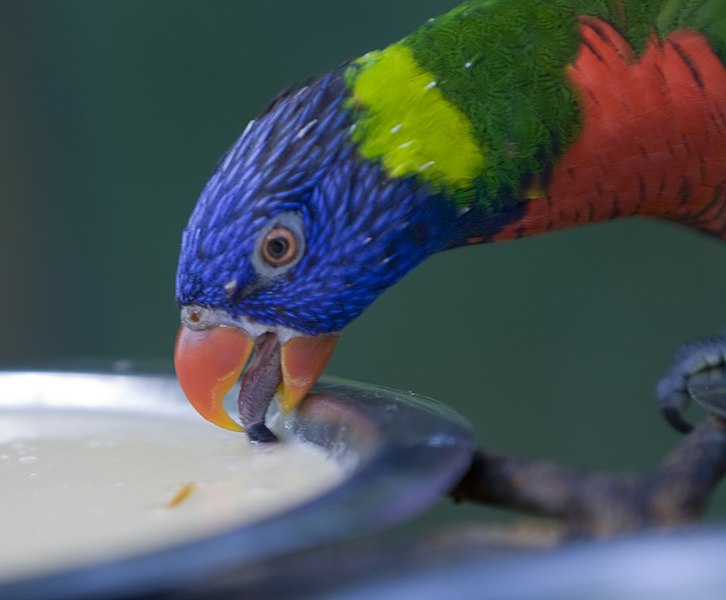Pet reptiles have long been recognized as potential carriers of Salmonella. Less well known is the fact that almost any animal, including parrots, finches, doves and other cage birds, can also harbor and transmit this troublesome bacterium.
Salmonella Transmission
Pet birds most commonly contact Salmonella from food and water contaminated with the bacteria, but in crowded conditions may also inhale airborne organisms shed in nasal secretions or feather dander. In outdoor aviaries, wild birds (especially pigeons in urban environments) rats, and mice are the usual culprits in a Salmonella outbreak.
 When I first began working at the Bronx Zoo, I was baffled by continued flare-ups of Salmonellosis among birds which had been cleared of the disease and were housed in isolation. It was later discovered that roaches and flies, which are particularly difficult to control in zoo holding areas, can spread Salmonella in their droppings as they travel from cage to cage.
When I first began working at the Bronx Zoo, I was baffled by continued flare-ups of Salmonellosis among birds which had been cleared of the disease and were housed in isolation. It was later discovered that roaches and flies, which are particularly difficult to control in zoo holding areas, can spread Salmonella in their droppings as they travel from cage to cage.
Symptoms
Depending upon the species (over 2,000 have been identified) and concentration of the bacteria, infected birds may exhibit no symptoms at all, especially if otherwise in good health. However, birds with mild (termed “sub-clinical”) infections are able to pass Salmonella to other animals and people, and may themselves become very ill if their immune systems weaken due to stress or other health problems.
Typical symptoms of Salmonellosis include weight loss, lethargy, diarrhea and, in some cases, mucus discharge, dermatitis, excessive thirst and the passing of yellow-green feces. Lories and African Gray Parrots appear to be especially susceptible to attack by Salmonella.
The disease is diagnosed via fecal tests; identification of the exact species involved is important, as certain species or strains require specific antibiotics, and do not respond to standard treatments.
Salmonellosis in People
 Salmonellosis is particularly dangerous to infants and elderly or immune compromised individuals, but even healthy adults should take proper precautions when working around animals of any type (please see article referenced below).
Salmonellosis is particularly dangerous to infants and elderly or immune compromised individuals, but even healthy adults should take proper precautions when working around animals of any type (please see article referenced below).
The overwhelming majority of aviculturists have little to fear from Salmonella, as it is not common in pet species…as always, knowledge and sound husbandry is the best way to safeguard your health and that of your pets.
Further Reading
The American Veterinary Medical Association’s Salmonella prevention guidelines are posted here. They refer to reptiles, but are applicable to birds.
An interesting study on Salmonella in parrots and other birds is posted here.
Cockroach image referenced from wikipedia and originally posted by Wm Jas to FlickR
Lorikeet drinking image referenced from wikipedia and originally posted by Mats Lindh to FlickR
 That Bird Blog – Bird Care and History for Pet Birds
That Bird Blog – Bird Care and History for Pet Birds
